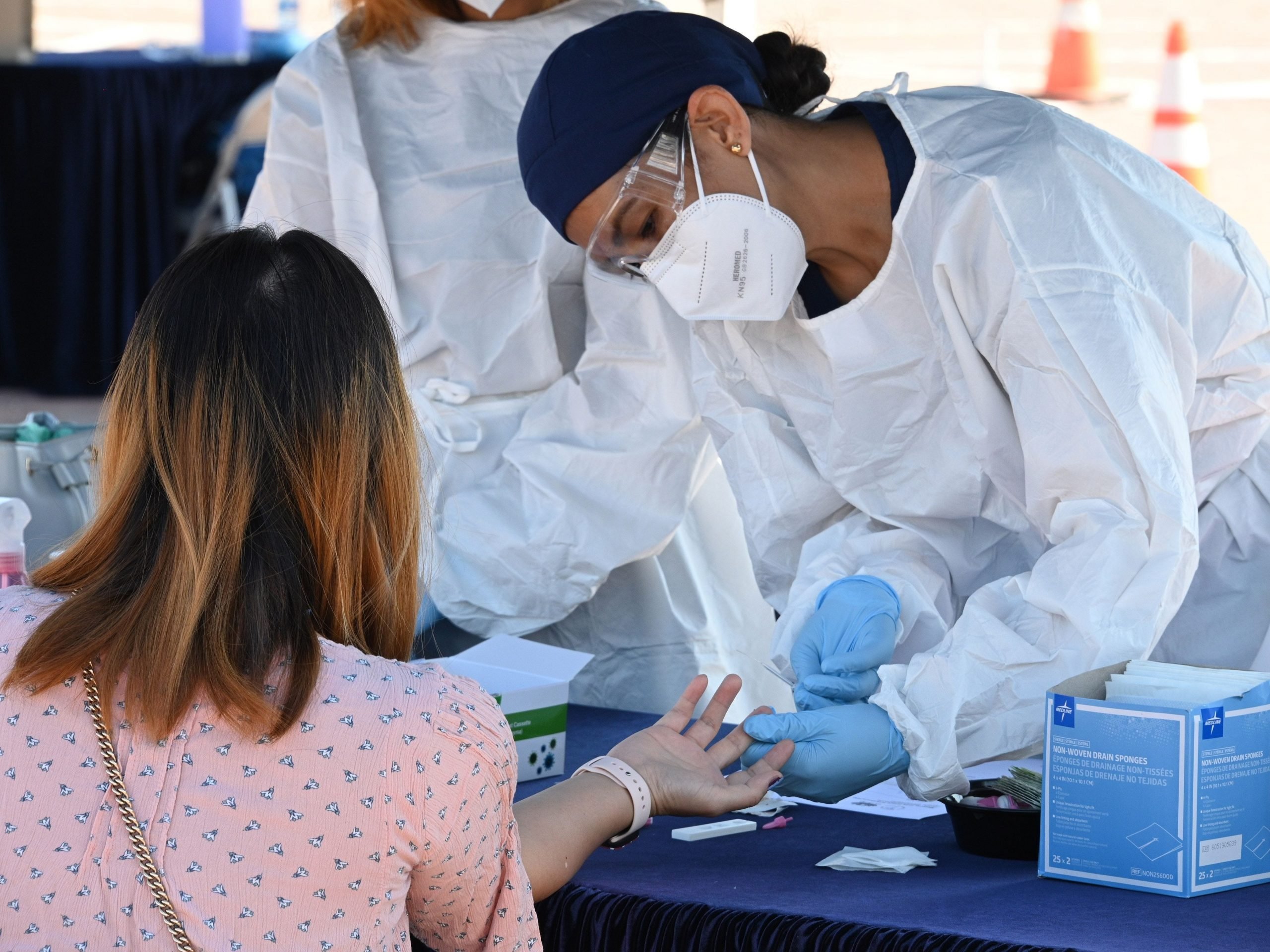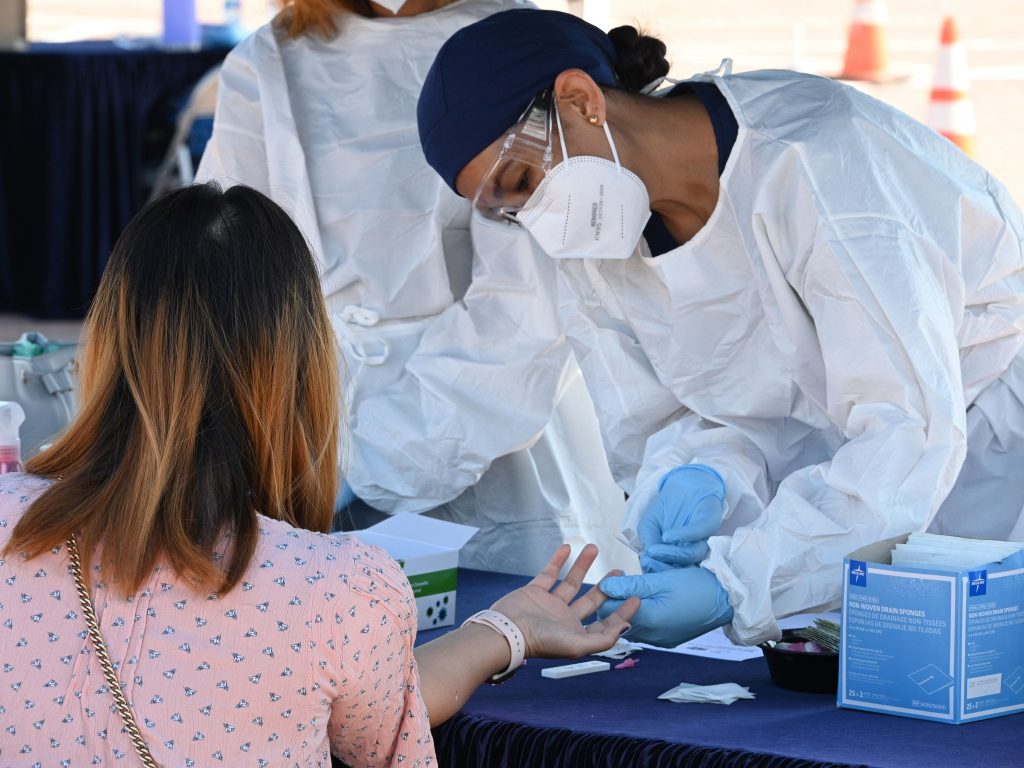
- Experts can't agree on whether to use COVID-19 antibody tests to check whether people need a booster shot.
- The FDA said on May 19 that antibody tests shouldn't be used to test for COVID-19 immunity.
- But experts told Insider that antibody tests to check COVID-19 protection in vulnerable groups were a "no brainer."
People should take an antibody test to see whether they need a COVID-19 booster shot, some experts have said.
These experts, including epidemiologists and virologists, can't agree on whether everybody should take the test, or only specific groups who are more at risk from COVID-19 — but they agree that knowing antibody levels could help decide whether somebody needs a booster shot.
Dorry Segev, professor of epidemiology at the Johns Hopkins Bloomberg School of Public Health, wrote in The Hill in October that it was "time to check antibodies and take the the guesswork out this pandemic."
We should test people for COVID-19 antibodies and recommend boosters when levels fall below a threshold, instead of assuming "one size fits all," he wrote. Antibody levels can determine how quickly you react to the coronavirus, and killing the virus quicker could both make infections less severe and limit the spread from person to person, he wrote.
The Food and Drug Administration and Dr. Anthony Fauci, President Joe Biden's chief medical advisor, oppose antibody testing as a way of checking people's protection. Antibodies are only one part of the body's immune response, and the tests can be crude. But Segev is far from alone in seeing the potential benefits of antibody testing — and even Fauci told Insider in June that a good antibody test can be a "pretty good" indicator of immunity.
Dr. Michael Mina, assistant professor of epidemiology at Harvard T. H. Chan School of Public Health, said on Twitter on Monday that tracking antibodies and knowing how quickly antibody levels drop may be "crucial" — although he acknowledged that some people may be protected even with low antibody levels.
Other experts told Insider that antibody tests were a "no brainer," but only if they were used to check if specific, vulnerable groups needed a booster. If an antibody test tells you that you haven't responded at all to a COVID-19 vaccine, you might need an antibody drug treatment, they said.
Choosing the right test
Right now, the best way to track COVID-19 antibodies is to test the blood for antibodies against the virus' "spike protein," which is the bit that attaches to human cells, or, more specifically, for antibodies against the "receptor binding domain," which sits on the spike protein. Existing COVID-19 vaccines target the spike protein, so your body makes antibodies against it after you get a shot.
Using these tests has challenges. At the moment, the reliability of antibody tests varies, and we don't know what level of antibody protects you. This level will also differ depending on the severity of disease that you're trying to protect against.
But experts Insider spoke to said these tests are a useful tool. Gareth McLean, professor of immunology at London Metropolitan University, told Insider that antibody testing could be used to see if those most at risk of dying from COVID-19 need an early booster shot.
"If their antibody level dropped significantly, it could be a good time for a booster," he said — but he added that it would require monitoring lots of people and might be practically difficult and resource intensive.
McLean added that antibody testing could be "a good tool for screening people who might have difficulty responding to vaccination," such as people on treatments or with medical conditions that suppress the immune system. If people don't produce any antibodies, as measured at least four weeks after an extra booster dose, it could mean their immune system isn't responding, McLean said.
Vincent Rajkumar, a professor of medicine and an oncologist at the Mayo Clinic, told Insider that he wouldn't recommend antibody tests for everyone — but he had been using antibody tests for his patients with multiple myeloma, a blood cancer, in countries where testing was readily available, to determine if they needed boosters, he said.
"I would advise antibody tests after vaccination for anyone who is elderly, has cancer, or is on chemotherapy drugs," he said.
Rajkumar said that it can be "disheartening" for people who don't produce antibodies, even after a booster. These patients shouldn't "lose hope" because they might have "some protection" from another part of the immune response, called T cells, he said. But they also need to recognize that they're more susceptible to COVID-19, and must ensure that they and their close contacts wear masks and are vaccinated, he said.
Professor Paul Bieniasz, a leading virologist at Rockefeller University, told Insider that it was a "no brainer' for immunocompromized people to get a antibody test check to see if they've responded to a vaccine.
"For everyone else, if you've had two doses and considering a third dose, get the third dose anyway," he said. "It's too early to advocate" widespread antibody testing, "but it could become part of routine monitoring in the future," he said.

